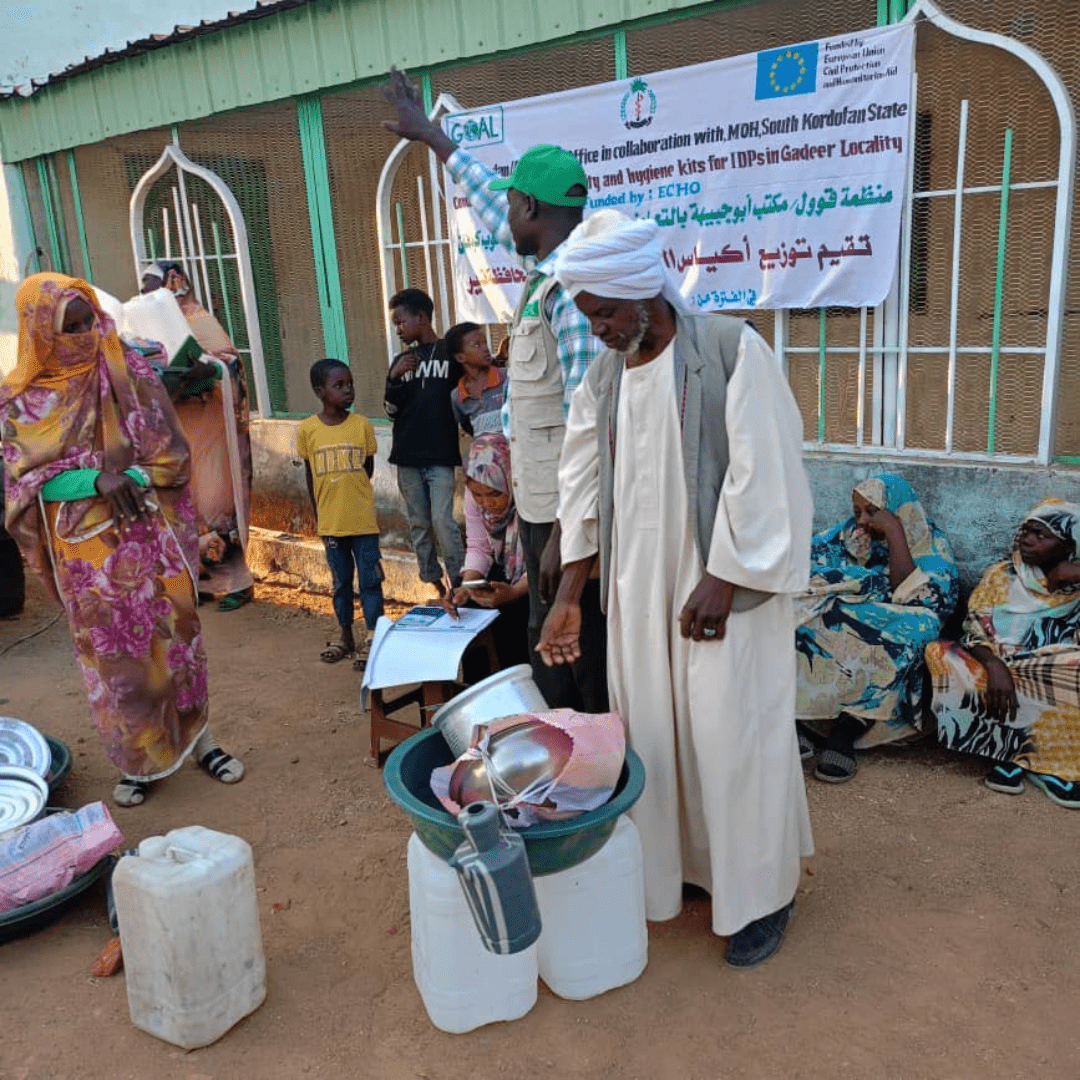 Press Release
Press Release
April 14, 2025 • 3 min read
Nearly two-thirds of Sudan’s population is in urgent need of humanitarian aid, representing 30 million people, the highest number of people in need ever recorded for a single country.
GOAL and ALIMA (The Alliance for International Medical Action) have provided emergency medical humanitarian assistance to 208,940 people in the El Fasher and Seref Omra localities of North Darfur in Sudan since April 2025, in response to one of the world’s most severe humanitarian crises. This initiative, funded by the European Commission Humanitarian Aid, provides lifesaving health, nutrition, water, sanitation, and hygiene (WASH) , and emergency response interventions, employing an integrated approach that strengthens community engagement while supporting the humanitarian-development-peace nexus. The primary goal is to improve access to quality health, nutrition, and emergency services for 369,400 people from host populations including 161,200 children under five years. A similar programme in South Kordofan is also underway.
Over the past two years, since April 2023, Sudan has been facing an unprecedented humanitarian crisis caused by the escalating conflict between the Sudanese Armed Forces (SAF) and the Rapid Support Forces (RSF):
|
In North Darfur, Sudan, GOAL and ALIMA deliver emergency humanitarian aid to address health issues caused by famine, a fragile healthcare system, and primary health needs of those most affected by this crisis: children and women.

John Rynne, GOAL’s Regional Director for Africa, highlighted the dire need for humanitarian assistance in Sudan, stating:
“Nearly two-thirds of Sudan’s population is in urgent need of humanitarian aid, including 16 million children. Acute food insecurity has reached historic levels, with famine conditions confirmed in several areas, putting millions at risk of starvation. At the same time, disease outbreaks are compounding the crisis, and climate shocks are worsening the situation. Women and girls are particularly vulnerable, facing increased risks of conflict-related sexual violence. Over 12.1 million people require specialised services. Despite efforts to deliver aid, severe access constraints in active conflict zones and funding shortages continue to hinder the delivery of assistance where it is needed most.”
The ongoing conflict has caused immense suffering in Sudan, with parts of the country described by a UN spokesperson as a ‘“hellscape.” However, despite the challenges, the GOAL-ALIMA partnership has successfully delivered mobile health clinics to IDPs, provided prevention and treatment services for children under five with Severe Acute Malnutrition (SAM), and distributed multipurpose cash assistance and hygiene kits to 176,750 number of people in need, of which 49,300 are under five years.
Dr. Sékou Condé, ALIMA’s Head of Mission for Sudan, emphasised the significance of the partnership, saying:
“Through our collaboration—not only with GOAL but also with the Sudanese Ministry of Health—we’ve been able to provide vital nutrition and healthcare services to women and children displaced by the crisis in North Darfur—services they would otherwise not have access to. ALIMA continues to support the Saudi Maternity and Gynecology Hospital; the only functional hospital in El Fasher. Due to insecurity and damage to hospitals and primary healthcare facilities, medical teams have repeatedly relocated. Our teams also provide medicines and medical supplies and reach displaced people with mobile teams in Tawila and El Fasher. Composed of Sudanese healthcare staff, it conducts an average of 500 consultations per day, primarily treating the most vulnerable.
